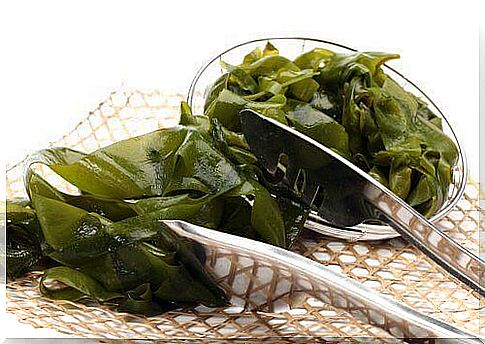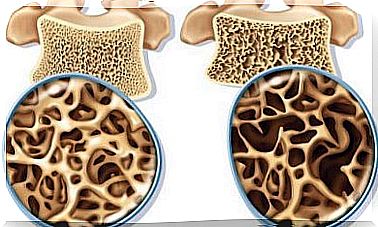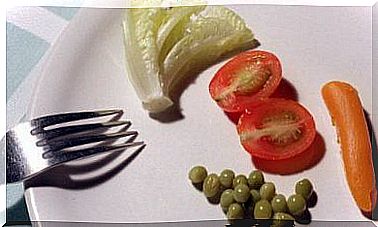Treating Thyroid Problems Naturally

The thyroid is only a small part of the body, but it is responsible for regulating your metabolism. For example, if you have a slow thyroid, your heart rate drops, you lose energy and burn fewer calories during exercise. In this article you will learn how to treat thyroid problems naturally.
What you need to know about thyroid problems
Thyroid problems are more common in women than men and especially in those over 60. But pay close attention, because the cases of hypothyroidism (the most common thyroid problem, where the thyroid gland is underactive) in women as young as 30 has been increasing recently.
More research needs to be done to find out if this is a genetic problem. However, worldwide, the cause of hypothyroidism in most cases is a lack of iodine.
Symptoms of Hypothyroidism
- Fatigue
- Unexplained weight gain
- Swollen or pale face
- muscle strain
- Hoarseness
- Dry skin
- High Cholesterol
- heavy menstruation
- Problems with the joints
When a patient has hyperthyroidism, his or her thyroid gland is more active than normal and the body produces an abundance of T3 and T4 hormones. This simultaneously speeds up many of the body’s normal processes.
Symptoms of Hyperthyroidism
- Change in appetite
- Dizziness
- Nervousness
- palpitations
- Irritability
- To sweat
- Diarrhea
- hair loss
- Fertility Problems
- Difficulty sleeping
Foods and substances that improve the functioning of the thyroid gland
Selenium
It is important to activate the hormones of the thyroid gland to ensure that it functions better. A good option is to increase your selenium intake by eating Brazil nuts, for example (a handful a day, five days a week).
Other sources for this nutrient include organ meats (such as liver) and seafood. But beware: ingesting too much selenium can also cause thyroid problems.
Iodine

Iodine plays an important role in the production of thyroid hormones. It is not a good idea to consume more than 150 micrograms per day (one milligram is 1000 micrograms). If you consume too much, it can cause an imbalance in your body.
Algae and iodized salt are the primary sources of iodine.
Zinc
Research conducted by scientists at the University of Massachusetts indicates that some women may have thyroid problems due to a lack of proper amounts of zinc.
The recommended daily amount is 10 mg. Among other things, this nutrient helps glandular receptors at the cellular level and strengthens DNA.
Calcium and Vitamin D

One consequence of thyroid problems is loss of bone density. So it’s important to consume more calcium (which is found not only in dairy products, but also in green leafy vegetables such as kale and spinach) and vitamin D.
soybeans
Foods such as tempeh and miso can suppress thyroid hormones. Soybeans (organic when possible) could therefore be more effective than any other treatment for hypothyroidism.
It is important to remember that soybeans contain phytic acid and other components that can impair the absorption of other nutrients in the body, so you need to be very careful when consuming soy products.
cruciferous vegetables
These should be eaten raw whenever possible. The best options are Brussels sprouts, cauliflower and broccoli. They block the absorption and utilization of iodine, which calms an overactive thyroid.
How Do You Treat Thyroid Problems Naturally?
First, it’s a good idea to see your doctor and request a complete blood test.
You can choose to refuse drug treatment so you can see a homeopath or naturopath who will prescribe a diet based on age-old traditions, but the blood test is always a good first step to get an idea of your TSH -, T3 and T4 values.
It’s also a good idea to increase your consumption of certain foods if you discover that you have hypothyroidism:
- Seaweeds (arame, kombu, nori) for their high iodine content
- Increase your intake of vitamin A, eat more carrots and eggs
- Tuna, spinach, nuts, beef and chicken for high zinc levels
On the other hand, you should avoid the following foods if you have problems with hyperthyroidism:
- sugars
- Compound foods
- Saturated fats
- Refined flour
- peaches
- pears
- Broccoli
- Pumpkin
Some more tips
If you have hypothyroidism, be sure to increase your intake of the fruits and vegetables in the list above.
Certain teas can also help raise your thyroxine levels. For example, a tea made with the leaves of a black walnut contains iodine to stimulate the thyroid gland.
Tea made with algae helps to regulate the body’s metabolism, boosting thyroid hormone production and improving blood flow.
It’s also a good idea to exercise regularly so that you can improve your blood flow and allow nutrients to move more freely through the body, while also eliminating toxins.
Jogging, jumping rope, or cycling are all excellent choices. The best options are aerobic and cardiovascular exercise. Just pick which one you like best.
Try relaxation therapies such as yoga, meditation, or tai chi to help regulate thyroid function, especially if your problem is caused by trauma, depression, or very bad news. At the same time, this will improve the quality of your daily life and not just the functioning of your thyroid gland.









